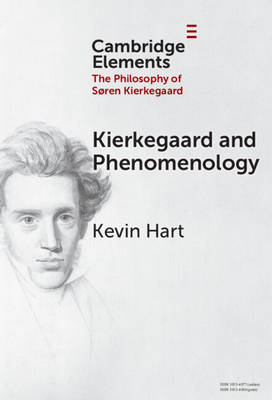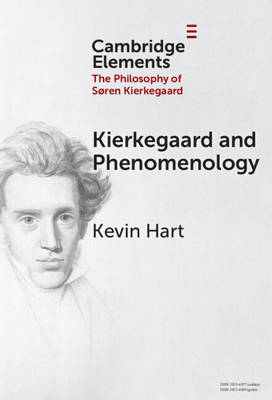
- Afhalen na 1 uur in een winkel met voorraad
- Gratis thuislevering in België vanaf € 30
- Ruim aanbod met 7 miljoen producten
- Afhalen na 1 uur in een winkel met voorraad
- Gratis thuislevering in België vanaf € 30
- Ruim aanbod met 7 miljoen producten
Zoeken
Omschrijving
Is Kierkegaard a phenomenologist? Much depends on what we take 'phenomenology' to mean, since the word has been stretched in all possible directions since Edmund Husserl wrote his major works. What have phenomenologists made of his writings? This question is easier to answer: he has been a constant reference point for many of them, although there is little agreement about his significance. This short book argues that he is a phenomenologist in the context of discovery, not justification. One finds attention to attunements in Kierkegaard, and one also finds modes of bracketing and reduction. Even so, his styles of thinking phenomenologically differ from those of most writers in this philosophical school. His phenomenology takes a theological path, one that leads from 'world' to 'kingdom, ' and one that often turns on what he calls 'the moment.'
Specificaties
Betrokkenen
- Auteur(s):
- Uitgeverij:
Inhoud
- Aantal bladzijden:
- 74
- Taal:
- Engels
- Reeks:
Eigenschappen
- Productcode (EAN):
- 9781009608947
- Verschijningsdatum:
- 11/09/2025
- Uitvoering:
- Hardcover
- Formaat:
- Genaaid
- Afmetingen:
- 152 mm x 229 mm
- Gewicht:
- 272 g

Alleen bij Standaard Boekhandel
+ 225 punten op je klantenkaart van Standaard Boekhandel
Beoordelingen
We publiceren alleen reviews die voldoen aan de voorwaarden voor reviews. Bekijk onze voorwaarden voor reviews.








